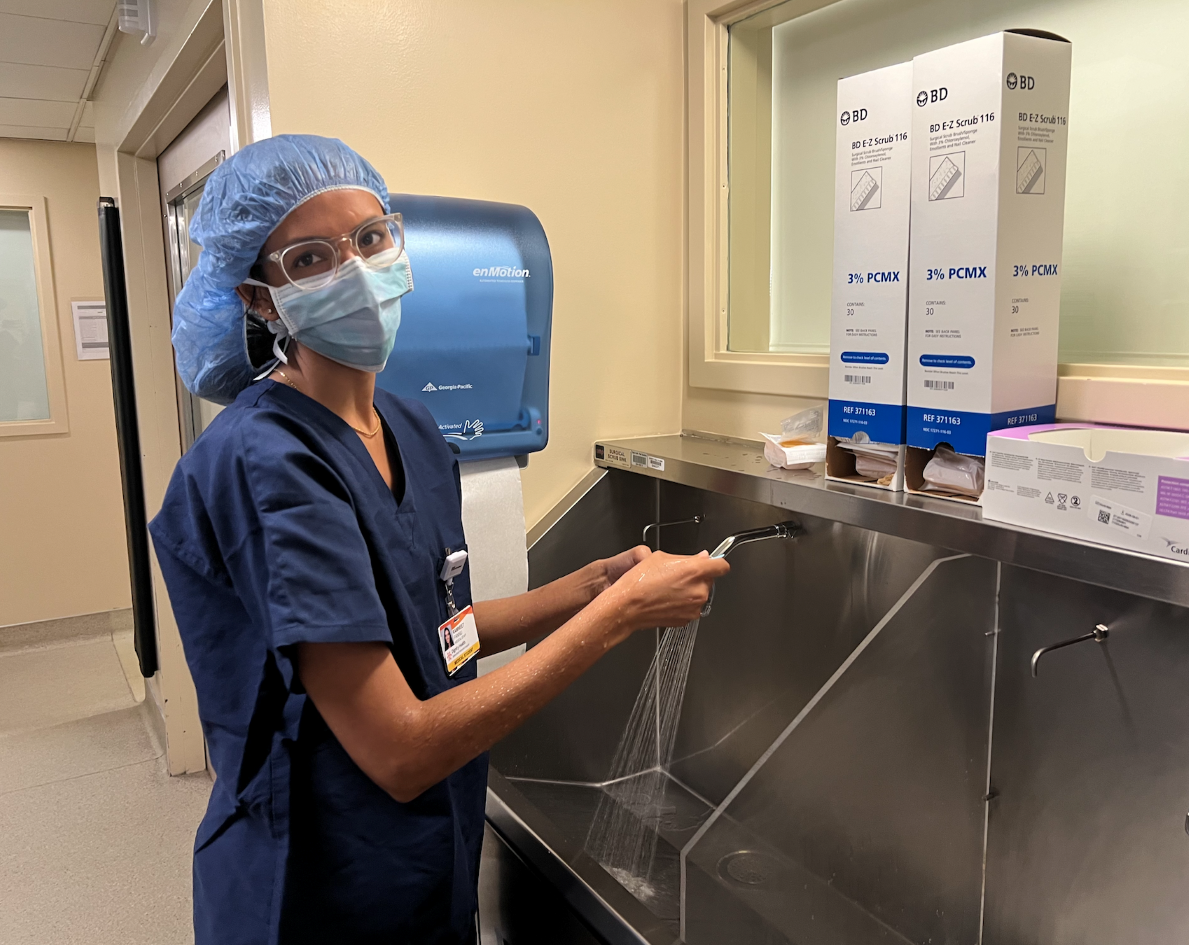Student’s Field Study Helps Refugees
Touro Student Doctor Assists in Streamlining Processes at the Oakland International Rescue Committee

Students pursuing a Master of Public Health (MPH) degree with a global health focus don’t have to travel overseas to make an impact, as student doctor Ramneet Pannu found out.
There were people affected by international humanitarian crises needing help right here in the Bay Area.
In the heart of downtown Oakland, California, Pannu, a dual Doctor of Osteopathic Medicine and MPH student from Touro University California completed an impactful six-week field study with the International Rescue Committee (IRC). The field study at the IRC allowed Pannu to help Afghan refugees navigate the complexities of resettlement.
“As a medical student, I know I want to work with underserved populations,” says Pannu. “I thought it would be an excellent opportunity to see the health care needs of a very vulnerable community outside the scope of a doctor's office, clinic, or a hospital. It was enlightening to see the challenges a lot of patients face, often just getting to the clinic.”
At the IRC Pannu witnessed the struggles of refugees accessing health care, managing transportation hurdles, and navigating complex insurance systems. Placed within the Health Navigation Team, Pannu’s primary responsibility involved connecting refugees with local and county services, facilitating health care enrollment, and empowering them to manage their needs on their own.
One way that Pannu helped to reduce the barriers and encourage self-sufficiency was through an informational pamphlet in Dari and Pashto, the two most common languages in Afghanistan. The pamphlet included listings for local health, translation, and transportation resources with step-by-step instructions on utilizing them. This allowed IRC participants to handle basic tasks independently and reduced the workload of IRC caseworkers. Pannu’s proactive approach was not just about providing immediate assistance but fostering long-term independence and resilience.
“We help explain the system to new residents, which is complicated enough for someone like me who was born and raised here and in the medical field,” says Pannu. “It’s hard to manage all these things, and I feel like the experience gave me a greater perspective on the challenges that a lot of marginalized and underserved populations face.”
As Pannu prepares to embark on a medical career, her time at the IRC has shaped her understanding of health care but made a meaningful impact on the lives of those in need.
“I feel like this experience will make me a better provider because I understand and empathize more about the struggles patients have outside of the examination room,” says Pannu.
